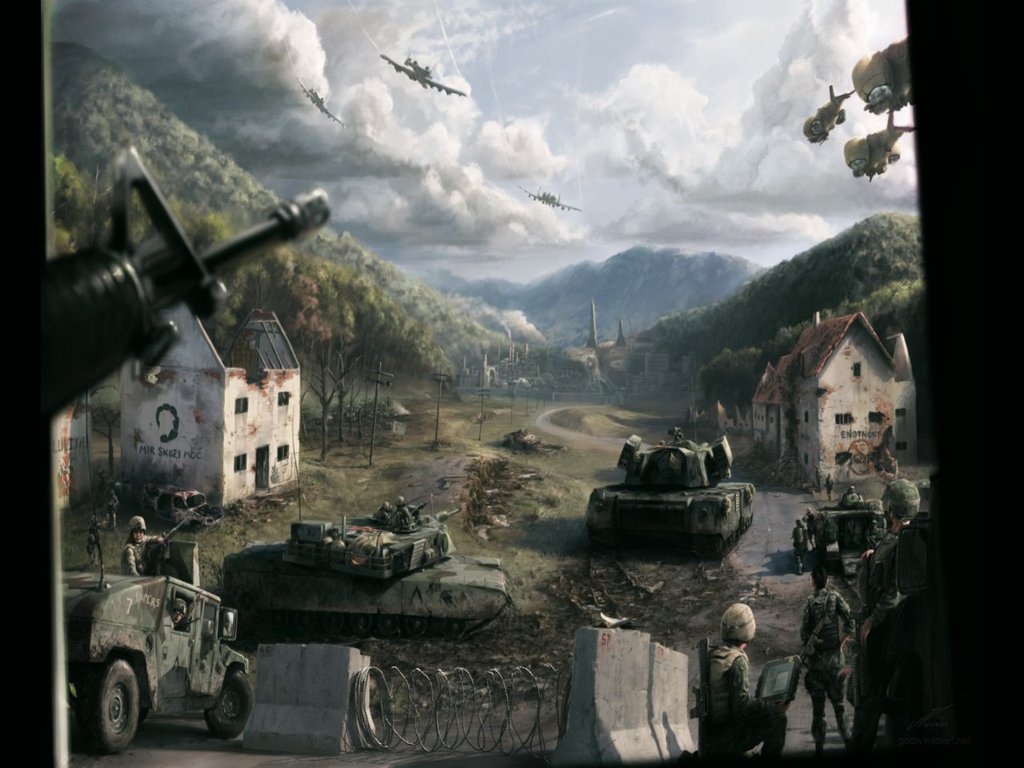As the 21st Century has matured, the divide in the United States has gotten more and more pronounced. While in many ways it is tribal (simply look at what either major political faction will scream bloody murder about when they are the opposition, and then look the other way when it is done while their people are in office), there is a fundamental fracture in the fabric of American society. And that fissure is deepening. More and more voices call for the utter destruction of anyone who disagrees with them, no matter how petty or nonsensical the disagreement is. A side with more and more power is demanding that things that are more and more demonstrably false and counter-factual be held up as right, true, and good, and threaten the livelihoods, or the lives, of anyone who refuses. The fracture appears to be largely along political lines. But it has become much deeper than that, a cultural divide between people who assume the worst of each other, in some cases simply because of the color of skin. And the politicians and tech giants who make their millions use that divide more and more, stoking the fires of the mob for
Weapons for Near-Future Settings and “Kraut Space Magic”

I’ve had to do some research into possible near-future weapons systems for a couple of series, now. If you’ve read The Colonel Has A Plan, you might have noticed that the Marines under Colonel John Brannigan are using M27s and LSAT machineguns instead of the current M4s and M249s or M240s. Similarly, the Marines at Camp David in Lex Talionis are armed with M27s. Now, arming Marines with M27s is an easy choice, since the Marine Corps recently announced a wider deployment of the glorified HK 416s, but it touches on a common theme when writing near-future military fiction. Including new weapons and gear that isn’t necessarily in common use yet helps to establish your setting.
You’ve Got To Be Kidding Me

Ordinarily, I might leave this kind of thing alone. But the fact that it was published on Soldier of Fortune I find immensely disappointing. It’s gobsmacking, actually. And given that firearms and combat tactics touch on the interests of a lot of my readers, this needs a smackdown. Apparently, somebody named Kris Osborn, who is billed as a military expert, even though I can’t find any reference to him spending a day in uniform, thinks that the M17 pistol is going to revolutionize combat tactics. Yes, you read that right. Go read it. I’ll wait.
Eyeing the Backlist
I’m reading Chris Fox’s book, Relaunch Your Novel: Breathe Life into Your Backlist. With The Unity Wars launched, and so far doing just about as well as Brannigan’s Blackhearts (rather than exponentially better, as I’d hoped), I’ve started thinking about the fact that my backlist isn’t quite earning as much as it should be. I’ve already done a little bit along these lines, with the new cover for Kill Yuan. Reading Chris’ work, however, it could probably use some more tweaking, mainly in the blurb, keywords, and marketing aspect. American Praetorians and Jed Horn get a bit thornier. At this point, I think that a full relaunch of both series would be in order. Jed Horn hasn’t ever done as well as the Praetorian books, in no small part because I simply marketed it to my fans, such as there are, and they were looking for military action. It didn’t really make it in front of the more MHI/Repairman Jack sort of audience. So, in addition to new covers for the first two at least (and probably new type for all four), it would benefit from a full relaunch. The Praetorian books get a little more complicated. Task Force Desperate
Overtaken By Events
“Timeliness” is a temptation that I think most military/spy fiction writers have to deal with. “Ripped from the headlines!” and “Prophetic!” are compliments that reviewers have used for works in the genre going back to Tom Clancy, at least. Those same phrases have been applied to some of my own work, and I’ll admit that it can be somewhat affirming (though often in a grim sort of way) to see events move in a generally similar direction to that predicted in one of your novels. It shows you that you read the situation fairly accurately.
